With a GPA of 3.5 or higher, along with quality essays and extracurricular activities, candidates can score points in the eyes of .
At the US Study Seminar organized by American Study last weekend, many study abroad consultants shared and analyzed how to prepare an application to a top US university.
According to experts, in addition to standardized test scores (SAT, ACT), four factors that make up the weight of an application are grade point average (GPA); personal essay; extracurricular activities and letters of recommendation.

Ms. Lien (left cover) advises parents at a workshop on the afternoon of October 8 in Hanoi . Photo: Binh Minh
Regarding GPA, according to Ms. Nguyen Hong Lien, Deputy Director of the American Study education organization, this is an index to evaluate the candidate's ability in each subject, as well as the entire high school learning process. She believes that candidates with a GPA from 3.5 to 4/4 (8.5-10) will stand out in the eyes of the admissions board and have the opportunity to apply for a scholarship.
The second factor is the essay. According to Mr. Tran Dac Minh Trung, Master of Education at Harvard University, the essay is the area to express personal color, highlight different thinking so that the recruiter can remember who the candidate is. The essay accounts for about 30% of the weight of the application.
"I advise you to focus all your time and effort on your essay because this is what can change the admissions officer's decision," said Mr. Trung. According to him, good essays often have cultural and family characteristics. He was impressed with an essay about pho. The candidate said that when cooking pho with his parents, he could feel every physical movement in the pot of pho. What ingredients were in that pot of pho, why did they blend together...
"This is not simply an article but like a documentary about people, with action and depth of content. It is a successful essay," he commented.
Similarly, John Schaefer, a former member of the Harvard University admissions committee, said that applicants need to start their essays early and be honest.
"The essay must be clear, show passion, bring out life interests and tell a story related to that passion. The essay must also reflect personal growth," Mr. John shared.

Mr. Trung shared at the US study abroad seminar on the afternoon of October 8 in Hanoi. Photo: Binh Minh
Besides academics, schools in the US also care about candidates' extracurricular activities.
Ms. Lien said that the strengths in the profiles of Vietnamese students are achievements and academic abilities, demonstrated through awards and medals at the national and international levels. However, candidates have difficulty expressing their own unique qualities and abilities.
"Vietnam's educational method does not emphasize the development of extracurricular profiles, leading to candidates having an advantage in terms of scores but not being competitive in extracurricular activities," said Ms. Lien.
According to experts, there are students who participate in many activities but do not know where to focus, so they cannot clearly show their path. She advises that instead of chasing quantity, focus on quality. Extracurricular activities should be built related to the major and personality of the candidate.
Mr. Trung said that admissions officers often evaluate candidates' extracurricular activities based on scale, persistence; existence, appeal and leadership ability. They will ask questions: When did this activity start? How many people participate? Is it regular or boring and repetitive? Looking at the candidate's profile, admissions officers want to see if the activity can survive or not? Is there a successor or is it just a one-time event to make the profile look good?
"Many activities are elaborate but not attractive. It can enrich your profile but will not be your valuable asset in the process of competing to get into a top school," Mr. Trung said.
Admissions staff will also verify activities through website, photos, and attached candidate videos to review for reliability.
The final element to consider is the recommendation letter. Recommendation letters are the perspective of the applicant’s high school companions. Admissions officers believe that the evaluation of teachers during this period of their life can show whether the student will continue to develop in a university environment.
Mr. Trung advised candidates to avoid submitting general recommendation letters that do not clarify your personality, character and characteristics.
"A bad recommendation letter will say that you are an average student, with nothing special. If you apply to a higher-ranked school, the mediocreness of the recommendation letter will sometimes be a factor in eliminating that application," he said, adding that copying someone else's extracurricular activities can also easily make it difficult for you to continue.
It’s college admissions season in the US. The first Early Decision (ED) deadline is usually November 1 or November 15. Applicants are notified of their results in early or mid-December.
Vnexpress.net



















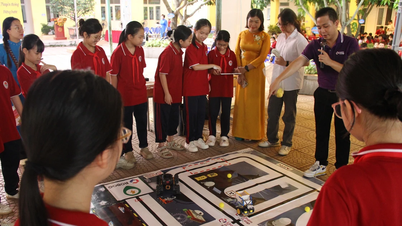















































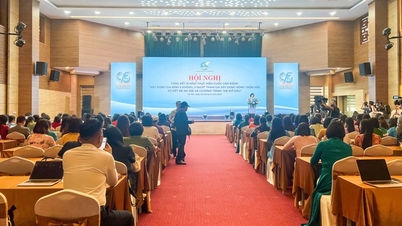
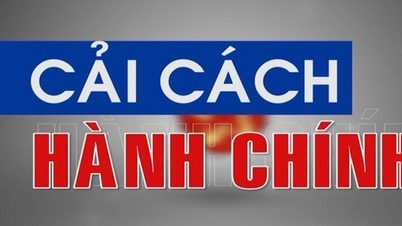





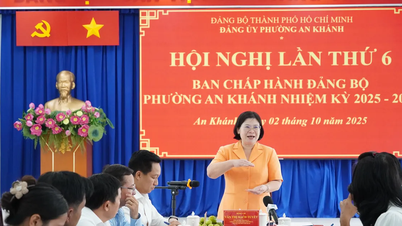

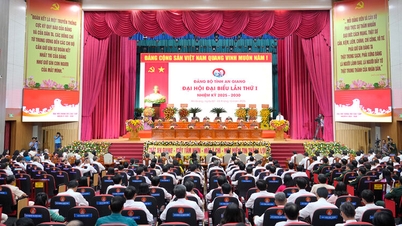



















Comment (0)